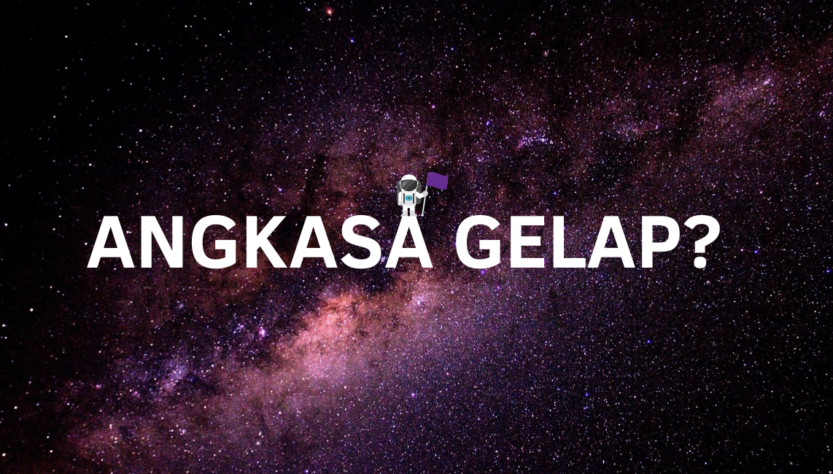We know that the universe is very big and has billions of stars out there, but if there are many stars that are much larger than the sun. why is outer space dark and black?
Even though the question seems easy, the answer is not as simple as we think, the reason why dark outer space turns out to have something to do with the vastness of our universe.
How’s the story? So, there are about a hundred thousand million stars in our galaxy, and a setilion or 1,000,000,000,000,000,000,000,000,000 stars in our universe.
Yes, there are a lot of stars in our universe. But the problem is that the stars in our universe are actually very far apart, and not all of them can be as close as the sun to give us light as strong as the sun.
Now, imagine that it’s like we have a flashlight. If we look closely, it looks bright, but when we look at it from a distance, the light dims. Then now try to imagine that starlight is like the light of a flashlight that is far away, but the difference is that their light is very far away, it takes millions of years of travel just to get to earth.
But actually that still doesn’t fully answer, because the facts are even more terrifying. It turns out that our universe is not only very wide, but also expanding and continuing to expand.
What is this thing? And what does that have to do with the darkness of outer space? Okay, instead of using complicated language. Imagine it’s like you have five kilograms of sugar and count each grain, that’s a lot, isn’t it?
In the beginning our universe was also this dense, but now try to spread the sugar on the black plate, keep trying to spread it on the black dinner table. Over time the sugar grains are getting farther apart and the sugar looks smaller, right?
Now, imagine that your sugar is spread over a field the size of the GBK stadium where the grass is painted black. Yes, your sugar will be very small, hard to see, and just white dots on the vast GBK grass.
And that’s the Big Bang theory, which finds that our universe is constantly expanding. Maybe later it will be a thousand times the GBK field.
Over time, we will no longer be able to see stars that are too far away, and maybe a time will come when there will be no more visible stars from the earth which will make our night sky completely dark in the end.
Another reason interstellar and interplanetary space appears dark is because it is an almost perfect vacuum. Remember that Earth’s sky is blue because the molecules that make up the atmosphere, including nitrogen and oxygen, scatter many of the components of visible light with blue and purple wavelengths from the sun in all directions, including our eyes.
However, in the absence of matter, light travels in a straight line from its source to the receiver. Because space is an almost perfect vacuum meaning that it has very few particles there is almost nothing in the space between stars and planets that scatters light into our eyes. And without light reaching the eyes, they look black.
So even though our night sky is not as black as the delicious rawon gravy, but at least we are grateful for the stars that we can see now, before they may eventually disappear from our sight forever.
The need for digital IT is needed in daily activities, Bead IT Consultant is the right choice as your partner, visit our website by clicking this link: www.beadgroup.com

